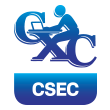The Sub-Committee of the School Examinations Committee (SUBSEC) has approved the development of CAPE syllabus for Biotechnology at its April 19 meeting held at CXC Headquarters in Barbados.
According to the concept paper presented to the governance meeting, the syllabus in Biotechnology is being designed to acquaint students with biotechnology and its application in solving real life problems, transform the natural resources of the Caribbean (biological wealth) to tangible wealth, enhance the bio-economic status of the Region, and engage students in the development of nutraceutical products. The paper notes that there are also “emerging avenues for students in tertiary programmes and entrepreneurial ventures.”
The syllabus in Biotechnology would consist of two Units – Unit 1: Biotechnology Principles and Unit 2: Application of Biotechnology and its Regulations. Each unit would consist of three modules. The assessment component of the syllabus would comprise three papers. Paper 01 comprises 45 multiple-choice questions (15 from each module), Paper 02 would require candidates to complete three compulsory structured questions (one from each module, and Paper 03 (SBA) would require candidates to develop a product.
The syllabus is expected to be developed in time for teaching in September 2020 with the first examination in 2021.
Syllabus development process
The CXC syllabus development process is an iterative one that involves various stakeholders. When a recommendation is made for the development of a new syllabus, a panel of experts drawn from various stakeholders including industry and education to determine what should constitute the syllabus or its construct. This document is then given to a syllabus development panel comprising teachers, subject matter expert, syllabus development officer and measurement officer to develop the syllabus content.
The draft syllabus is then circulated to stakeholders for comments and feedback. The feedback is then taken into consideration for the next draft of the syllabus.
The concept for development of the syllabus also has to through governance committee approval. The Sub-Committee of the School Examinations Committee (SUBSEC) has to approve the concept for development before the panel is convened. After the approval is given and the draft syllabus is completed and feedback received, the draft syllabus along with the feedback are taken to SUBSEC for approval. When approved, the syllabus is finalized and distributed to schools prior to the academic year it takes effect. The recently launched CXC Customer Service Charter stipulates syllabuses should be in schools by March of the year teaching starts.
Revised syllabuses for 2018 academic year
Schools are reminded that SEC approved the revision of several CAPE and CSEC syllabuses in 2017 which will be distributed to schools in 2018 for teaching at the start of the academic year 2018/2018. These include syllabuses for CAPE Biology, Chemistry, Physics, and Law. These subjects will be examined for the first time in 2019.
At the CSEC level, SEC approved the revision of syllabuses for Music and Theatre Arts to be distributed in 2018 and for first examination in 2020.













